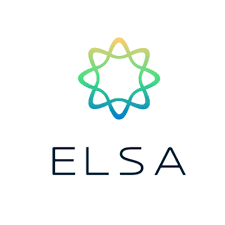Know that artificial intelligence can be your ally when learning other languages. See how these apps can help you become bilingual.
Contrary to what many people think, artificial intelligence is capable of helping us in different moments and situations in life, even when learning a new language. Applications that use artificial intelligence are now available on the internet to help you if you want to learn a new language and become fluent.
Get to know a little about each of the apps we have selected for you, and start practicing a new language today. With the possibilities and methodology of artificial intelligence, the chances of developing the language more quickly are very great.
Why use these apps to learn a new language
Using applications that rely on artificial intelligence in their construction, you will have new possibilities when learning your new language. This is because apps don't limit you and you can talk about whatever you want, expanding your vocabulary and introducing you to new response formats.
Interaction with these applications becomes more dynamic and effective than with traditional language teaching applications, where there is only one possible answer considered certain. With these applications you can develop a much more humanized conversation, full of different paths.
Have powerful tools in your hands to learn new languages and make this experience much easier and more effective. By practicing a little every day, you will soon have a broad vocabulary and well-stocked grammar, ready for everyday situations or even trips to other places in the world.

TalkPal
Countless languages await you in this application that will teach you in the easiest way possible. With TalkPal you will quickly learn the language you want, and you will feel like you are talking to a person in real life. That's because TalkPal puts the voices of real people to interact with you.
It is ideal for those who do not yet feel confident in putting their conversations in other languages into practice and find it difficult whenever they are faced with a situation in which they need to use their second language. With TalkPal and a few minutes a day your difficulties will disappear and you will cultivate a rich calendar and fluid speech.
Elsa Speak
For those who are specifically studying English, this is one of the best apps in its category. You can talk about different topics with Elsa at different levels according to your vocabulary. Elsa is the artificial intelligence that interacts with you throughout the learning moment.
If you want to train not only speaking, but also writing and vocabulary in general, Elsa also offers you some lessons that will help you train as your level increases. Have more interactive learning with Elsa, and progress gradually without rushing.
He spoke
You will be in front of several lessons on different subjects to train your second language, especially if you are going to travel. This app quickly teaches you some essential names and words for everyday life, and helps you practice your pronunciation of the words you are studying.
By taking just a few minutes a day to dedicate to the app, you will be able to see a significant improvement in your speaking and writing, and you will certainly be able to have a lighter and more fun trip. Count on more than 20 language options to start studying with Falou today.
LangoTalk
In this application, artificial intelligence is already trained and ready to talk to you comprehensively about various topics. Talk about sports, animals, work and many other topics in a light and relaxed way with Lango Talk and see how easy it can be to increase your vocabulary and your performance in English.
At any time of the day you can open the app and practice with the available bots. There are so many topics that you will always have something to talk about with artificial intelligence and expand your vocabulary in the most varied niches. Start chatting with Lango Talk bots today.

Become fluent faster
These apps will definitely help you gain fluency in the desired language. Dedicate a moment of your day to open up and practice with artificial intelligence, and see how learning can be much more relaxed and rich than you imagine, as you won't feel limited when speaking.
You can download all the apps and test them, seeing which one you find most interactive and achieves your goal. Become bilingual in just a few minutes a day and see how impeccable your vocabulary and grammar will become. Are you ready to become fluent in other languages in just a few hours a week?
Common questions:
How can artificial intelligence help with language learning?
Artificial intelligence can help with language learning in several ways, such as offering personalized tutorials, adaptive exercises, conversation practice through chatbots, and pronunciation correction.
What are some top AI tools for learning languages?
Some of the top AI tools for learning languages include language apps like Duolingo and Babbel, voice assistants like Google Assistant and Amazon Alexa for speaking practice, and speech recognition software for pronunciation correction.
Can artificial intelligence completely replace traditional language teaching methods?
Although artificial intelligence offers many benefits in language learning, such as convenience and personalization, it is unlikely to completely replace traditional teaching methods, as human interaction and personalized feedback are still fundamental to effective learning.
What are the challenges faced in using artificial intelligence to learn languages?
Some challenges include a lack of customization for different learning styles, limitations in understanding natural language, and difficulties in providing accurate feedback in areas such as pronunciation and grammar.
How can I maximize the benefit of using artificial intelligence to learn a language?
To maximize the benefits, it's important to use a variety of AI capabilities, such as language apps, voice assistants, and speech recognition software, and combine them with regular practice, human interaction whenever possible, and language immersion through films, music and reading.
